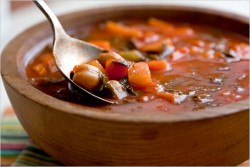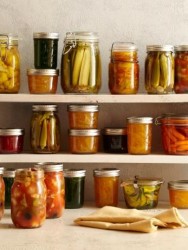If you’re like most people, you probably waste food more often than you’d like. It’s an easy thing to do thanks to the abundance of delicious temptations to face at the store, in vending machines, and even in the kitchen pantry at home. Luckily, there are many easy ways you can keep food waste down to a minimum without the need for a lot of commitment or any sacrificing.
Plan Ahead
One of the best ways to minimize food waste is to spend some time planning ahead before heading to the store. Create a menu for lunches and dinners, and then fill in the blanks with items that can be used for breakfasts and snacks. This will help ensure that you don’t end up buying things on a whim that will end up going bad before you get around to using them. Pre-planning meals and ingredients should help you steer clear from picking up the unhealthier things that might tempt you while shopping.
Soup it up!
If you find yourself with carrots that are beginning to get soft, greens that are beginning to wilt, and veggies that are losing their color, forget about throwing them away and put together a simple yet tasty soup instead. Simply cut everything up into bite-sized pieces and throw it all into a pot along with some broth, herbs, and a little salt. You can freeze any leftovers for your week ahead and quickly microwave them when you need a quick, healthy meal.

Via New York Times
Focus on Frozen
One of the first things that tends to go bad in the kitchen is fresh produce, in part because of its unpredictable shelf life. Frozen fruits and vegetables are picked as soon as they are ripe and put through the freezing process right away, ensuring that all the nutrients remain intact until they reach the table. They also happen to hold up well in the freezer for weeks, if not months, before having to be consumed or replaced. So if you aren’t positive that you’ll get to use the fresh produce you are thinking about buying within a day or two, consider buying frozen instead.
Dare to Preserve
You can preserve many fruits and vegetables before they go bad if you know you won’t be able to enjoy them in time. Vegetables such as zucchini, cucumbers, carrots, broccoli, cauliflower, and even cabbage can be preserved by sealing up pieces of veggies in jars along with vinegar, salt, and spices. Fruits including berries, peaches, apples, cherries, and pineapple can be preserved by putting the fruit and some sugar in a blender and mixing the fruit until it becomes the consistency of jam. The fruit can be jarred and sealed for long-term storage.

Via Food Network
Consider Composting
Yet another effective way to minimize food waste within your household is to compost all the stuff you don’t end up eating as it goes bad. Everything from bananas and stale bread to lettuce and uneaten oatmeal can go in a compost bin. Once the bin is full, recycle it at a local center or take it to the yard and mix it with some dirt to fertilize it. The dirt should be ready to garden within just a few months.
Tim Smith is a former contractor who writes about home improvement and energy efficiency topics for Modernize.com. Tim loves spending time with his family and loves DIY projects.


